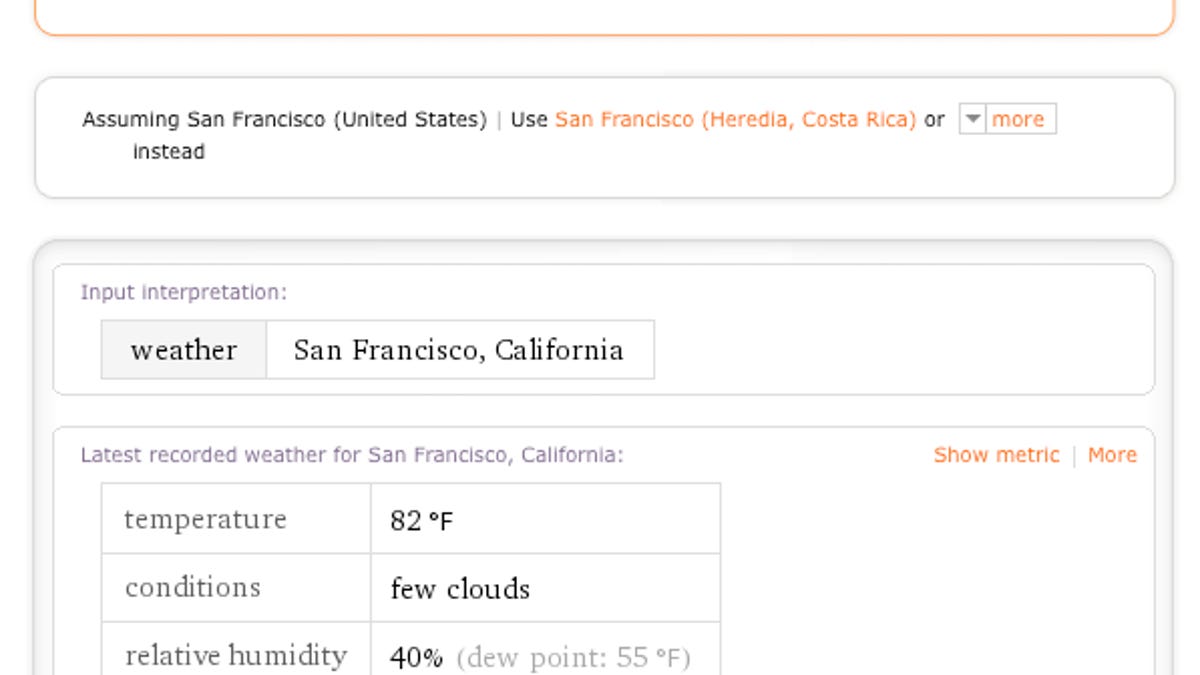Report: Wolfram Alpha to offer API for data feeds
Wolfram Alpha is opening up its data via an application programming interface. It's a good move that allows others to take advantage of collective information resources.

According to the Guardian, Wolfram will be opening its curated data to be queried via an application programming interface, or API. Currently, you can view results in a browser, export them as a PDF, or "play" them using a Mathematica plug-in. The ability to use the data on other sites and for other means, such as computations in spreadsheets, is appealing, if not earth-shattering.
Wolfram's launch fanfare was followed by much confusion about what Wolfram actually is. One thing that's clear is that the service has an impressive amount of data. What's not clear is if and when it will ever make money.
APIs are at least a good start in relation to monetization--holding the Alpha data captive within its site meant that it would never go beyond its own traffic, a recipe for disappointment and counter to the link economy that has been built around sites like Twitter.
In today's socialized Internet, APIs to your data are the barrier (or door) to getting users hooked on your data. Regardless of whether through an API that controls a cloud service like Amazon Simple Storage Service (S3), or the ability to get communications in and out of Facebook, users want to consume data in the way they feel most comfortable. Any company that creates or aggregates data needs to make it available, if it expects to ever hit critical mass.
CNET News' Tom Krazit recently wrote about a licensing deal between Microsoft's Bing "decision engine" and Wolfram Alpha (two non-search engines join up to create a super search engine?) that "allows Bing to present some of the specialized scientific and computational content that Wolfram Alpha generates."
If Microsoft is serious about taking on Google's geek factor, and asserting its dominant position in spreadsheets and higher education as Bing grows, then the data from Wolfram adds a new dimension. From the consumer perspective, the more informed the data is, the better, but both Bing and Alpha have a long way to go to catch up to Google.
Follow me on Twitter @daveofdoom.

